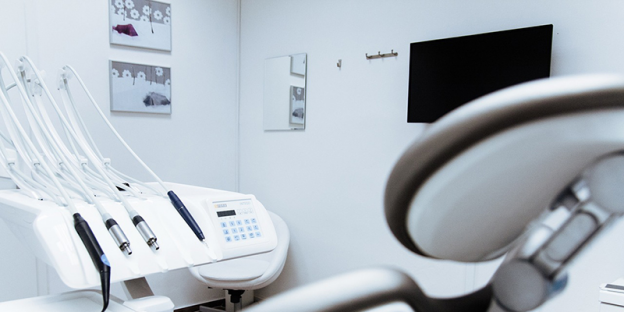When considering dental implants in Australia, the decision often comes down to costs, procedures, and long-term benefits versus traditional dental solutions. Dental health impacts our ability to eat and speak and our overall health and confidence. Therefore, understanding the intricacies of dental implants is paramount.

Are Dental Implants Worth It?
The cost of dental implants in Australia can be prohibitive for many. It is essential to break down the numbers to understand why they are priced high and whether they offer value for money.
A complete set of dental implants can cost AUD 20,000 and AUD 50,000, depending on various factors such as the case's complexity, the type of implants used, and the dental surgeon's expertise. This price often raises the question: Are dental implants worth the investment compared to other dental solutions, such as dentures or bridges?
The Price Breakdown
- Initial Consultation and Diagnostics: The first step involves a thorough consultation, which includes X-rays, CT scans, and possibly other diagnostics to assess the jawbone's health and structure. This can cost between AUD 200 and AUD 600.
- Surgical Procedure: The cost of the implant surgery itself is significant. This includes placing titanium posts into the jawbone, which acts as the root for the artificial teeth. The surgery can cost between AUD 3,000 and AUD 7,000 per implant.
- Abutment and Crown: After the implant integrates with the jawbone, an abutment is placed on top of the implant, followed by a crown. This step can add another AUD 3,000 to AUD 5,000 per tooth.
- Additional Procedures: Sometimes, additional procedures, such as bone grafting or sinus lifts, are required to ensure the implants have a solid foundation. These procedures can cost between AUD 2,000 and AUD 5,000.
While these costs are steep, it is crucial to consider the longevity and durability of dental implants. Unlike dentures or bridges, which may need frequent replacements or adjustments, dental implants can last a lifetime with proper care. This long-term benefit often makes them a cost-effective solution.
Procedure: A Complex Yet Rewarding Journey
The procedure for getting a full set of dental implants is intricate and multi-phased, requiring meticulous planning and execution. It begins with a comprehensive evaluation, during which the dental surgeon examines the patient's dental and medical history, performs necessary imaging tests, and develops a tailored treatment plan.
Step-by-Step Procedure
- Initial Assessment: The dental surgeon conducts a detailed evaluation to ascertain the patient's implant suitability. This includes checking for adequate bone density and gum health.
- Planning: Using advanced imaging techniques, the surgeon plans the precise placement of each implant. This stage is crucial as it determines the success of the implants.
- Implant Placement: The actual surgical procedure involves placing the titanium posts into the jawbone. This step is usually done under local anaesthesia, although sedation options are available for anxious patients. Post-placement, a 3-6 months healing period is necessary for osseointegration, where the bone grows around the implant.
- Abutment Placement: After successful integration, an abutment is attached to the implant. This serves as the connector between the implant and the crown.
- Crown Placement: Finally, custom-made crowns that match the patient's natural teeth in colour and shape are placed on the abutments. This marks the completion of the process.
The Argument for Dental Implants
Dental implants are often touted as the gold standard for tooth replacement, and for good reasons. They offer several advantages over traditional dentures and bridges.
- Durability and Longevity: Dental implants can last a lifetime, making them a worthwhile investment for long-term dental health.
- Functionality: Implants function like natural teeth, allowing patients to eat, speak, and smile with confidence. They also prevent bone loss, a common issue with missing teeth.
- Aesthetics: Dental implants look and feel like natural teeth, providing a more aesthetically pleasing result than dentures.
- Convenience: Unlike dentures, which can slip and cause discomfort, implants are stable and do not require removal for cleaning.
However, it is essential to acknowledge the challenges and potential downsides. The high cost and the invasive nature of the surgery are significant considerations. Moreover, only some are suitable candidates for implants. Patients with insufficient bone density or those with certain medical conditions may not be eligible.

The Psychological and Social Impact
Beyond the clinical and financial aspects, dental implants have profound psychological and social impacts. Missing teeth can lead to self-esteem issues and social anxiety. Dental implants can restore not just function but also the confidence of individuals who have lost teeth due to injury, decay, or other reasons.
Confidence and Quality of Life
- Enhanced Self-Esteem: Many patients report a significant boost in self-esteem post-implantation.The ability to smile without hesitation can positively affect personal and professional relationships.
- Improved Quality of Life: Implants' functionality allows individuals to enjoy a varied diet, contributing to better nutrition and overall health. Additionally, their stability eliminates the embarrassment and inconvenience often associated with dentures.
The Counterarguments
While the benefits are compelling, it is vital to consider the counterarguments. The high cost and the need for surgery are deterrents for many. Moreover, the process is time-consuming, requiring multiple visits and a healing period that can stretch over several months. There's also the risk of complications such as infection, implant failure, or nerve damage.
Conclusion: Weighing the Pros and Cons
In summary, several factors come into play when weighing the costs and benefits of a complete set of dental implants in Australia. The high initial investment is a significant consideration. Still, the long-term benefits of durability, functionality, and improved quality of life make a compelling case for choosing dental implants over traditional alternatives.
Individuals must consult with qualified dental professionals to assess their specific needs and determine the best course of action. While dental implants may not be suitable or affordable for everyone, they represent a revolutionary advancement in dental care that offers numerous benefits for those who choose to invest in them.
Thus, the decision to opt for dental implants should be made after carefully considering all the factors involved, including financial, medical, and personal aspects. Only then can one truly determine whether dental implants are the right solution for their dental health needs?





